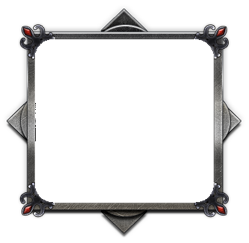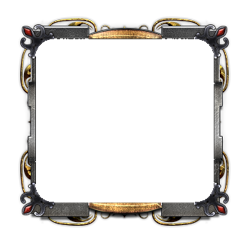This came about while working on my Alchemy write-up (which is still in progress), and I thought I would share it as an idea for the game.
In short...I propose that UI labels on items in your inventory should work the same way that labels over a person’s head do. If your character doesn’t know what they are looking at, you shouldn’t see a label telling you what it is...you should only see a label telling you what your character knows about that item. Naturally, if you learn more about an item, the label would update.
So, to give a few examples.
You picked a key out of someone’s pocket, you don’t know anything about this key...it’s just labeled to you as “Stolen Key.” If you then tail your victim to his house, then sneak into the house when he leaves again and, by testing, discover that the key fits a trunk in his house, the label updates to “Stolen Trunk Key” and gains a tooltip telling you the last place you saw the trunk that the key goes to.
As a Messenger, you are handed a scroll. At first, it only appears in your inventory as “Scroll,” with a tooltip indicating where you got it from. Then you sign a contract to ensure the delivery of the scroll to one ‘John Smith’ in ‘Exampleburg.’ The label updates to ‘Scroll for John Smith.’ Well, the contract never specified you couldn’t read the scroll, so you crack it open and take a peek. It’s a Trade Agreement contract. Now your inventory labels it as “Trade Agreement for John Smith” and the tooltip lists who the other signing party is.
You have the leaves of a plant in your inventory, your character doesn’t know anything about them, thus they are labeled “Plant Leaves.” You eat one of them, it makes you violently ill. Now they are labeled “Poisonous Plant Leaves.” You go and study Herbalism for a while and learn what the plant is, and now they are labeled “Lily of the Valley Leaves” with a tooltip that tells you what your character knows about them (for example, that they are poisonous).
In addition to ‘knowledge based labels,’ you can also manually add notes to an item. For example, if you are working on a sword for John Smith, the game would not know that the pommel you just made is for his sword. But, if you want to, you can add your own label to the pommel to indicate that is intended for his sword.
Both these and knowledge-type labels are subject to the same sort of ‘forgetting’ mechanic that remembering names is. With the exception of labels gained from profession skill at identifying something, the longer you go without re-encountering an item, the more likely you are to forget what it was. So if you make a Pommel and tag is as “Pommel for John Smith’s sword” then pitch it into the back of your workshop for a few months...when you find it while cleaning, your character probably won’t remember the tag you put on it. Likewise, if you stash that Stolen Trunk Key for a while, you'll probably forget what it went to after a while.
There is a work-around to this forgetting mechanic, and is also potentially necessary for marking things that are extremely hard to distinguish (For example, many alchemically-used liquids may be visually indistinguishable, and potentially hazardous to ‘figure out’ what they are. This work around is adding physical labels to things. With something to write on, write with, and a way to attach it (string, glue, etc), you can affix a physical label to something.
The upside is that you’ll never have to worry about forgetting the label you made. The potential downside is that others can read the label as well. And a potentially complicating factor is that the labels do not have to accurately represent what they are labeling.
So, using this, you could attach a label to that pommel and never have to worry about forgetting who it was for. Or you could label that bottle of Wood Alcohol you just refined with a tag that says “Wood Alcohol (Do Not Drink!)” so your apprentice won’t get it confused with a sort of Alcohol that doesn’t make you go blind. And, if you (as the player) can remember what you did...you could label a bottle of poison as if it were medicine as a trap to an unwitting Thief.
So, what do you all think? Agree? Disagree? Think it needs to be refined in places?
Let me know.









